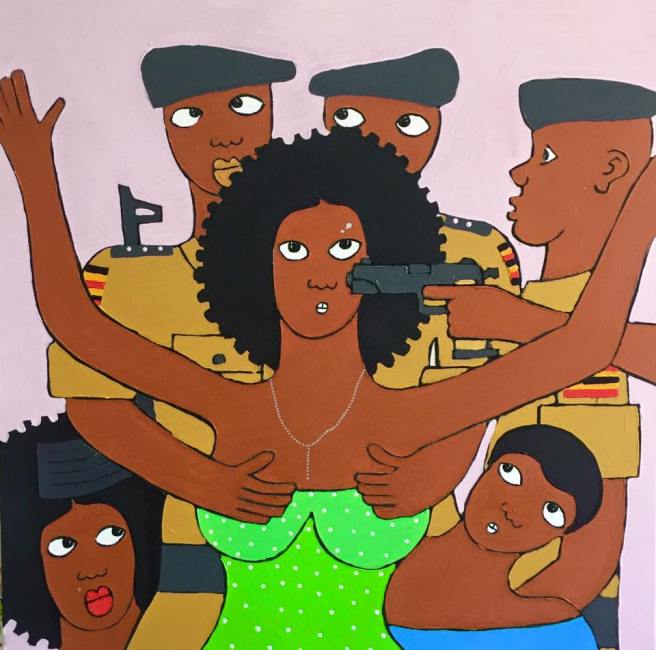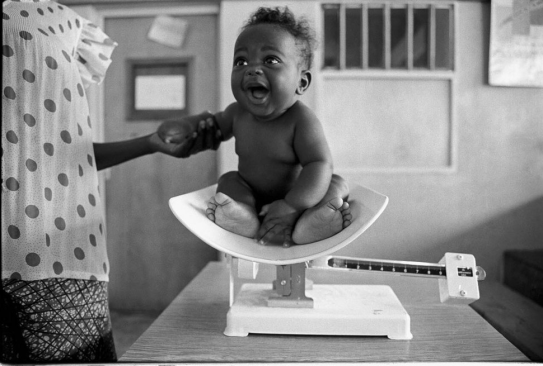 It is a failure of the imagination that we cannot see the feminism in the wide-eyes and exaggerated secondary sex characteristics of Michael Soi’s women.
It is a failure of the imagination that we cannot see the feminism in the wide-eyes and exaggerated secondary sex characteristics of Michael Soi’s women.
This is okay. I know patriarchy is complex and confronting it is confusing. It is 2016 and Kim Kardashian is posting nude selfies alongside womanist statements on her instagram. This is not the angry, prudish misandry that you were told is feminism.
Soi’s work; accessible, brightly coloured pop art takes on East African social hypocrisy with a wry smile. Police officers hold their hands out for bribes, dreadheads bed white women in pursuit of “The Dutch Visa” and everyone places their hands possessively over the breasts and buttocks of the sex workers depicted.

Soi has been accused of misogyny because of the voluptuous women that he loves to paint. Their lips are full, their eyes are wide or hidden behind a fashionable pair of oversized sunglasses, and their bums callipygous. Often their expressions are blank as they twirl around the stripper pole or put their hands down the pants of a mzungu. As a result, the artist’s depictions of African women have been called “problematic”. Of course Soi’s work must be debated and questioned, but I would argue that to accuse Soi of sexism is to fall short in one’s interrogation.

Soi takes on taboo issues; corruption, moral policing by a highly corrupt state, commercial sex work and the commodificiation of interracial romance. Sex workers are women too, women who often come into confrontation with the state as they try to make a living in a deeply patriarchal society. When a prostitute must bribe a police officer with a blowjob to avoid a night in jail while her high society John gets off scot free, will feminism not defend her? When sex workers defend their right to walk around late at night, to wear what they please, aren’t these rights that all women benefit from? Is it not feminist language that allows us to look at Soi’s paintings and discuss women’s objectification, their place in society as the global “sex class”, the difference between seeing and being seen? When we look at the women in Soi’s vivid paintings only as objects of male pleasure (in much the same way as the male characters depicted do) are we not denying them their agency? If you look at the women of Soi’s paintings and do not wonder what they are thinking, what choices brought them to this place, is this a failure of our imaginations, or Michael Soi’s?

Soi’s oeuvre features a range of women from the fully dressed, afro-ed, kitenge-ed, and dignified to the beweave-ed, Monroe pierced and panty-clad. If we come away from an examination of his work talking only about the latter, is this the fault of the artist’s or our own as an audience and society?
Michael Soi’s exhibition “Kampala; The Social Circles” is currently showing at Afri Art Gallery until 31st March 2016. All images courtesy of the Artist’s facebook page


